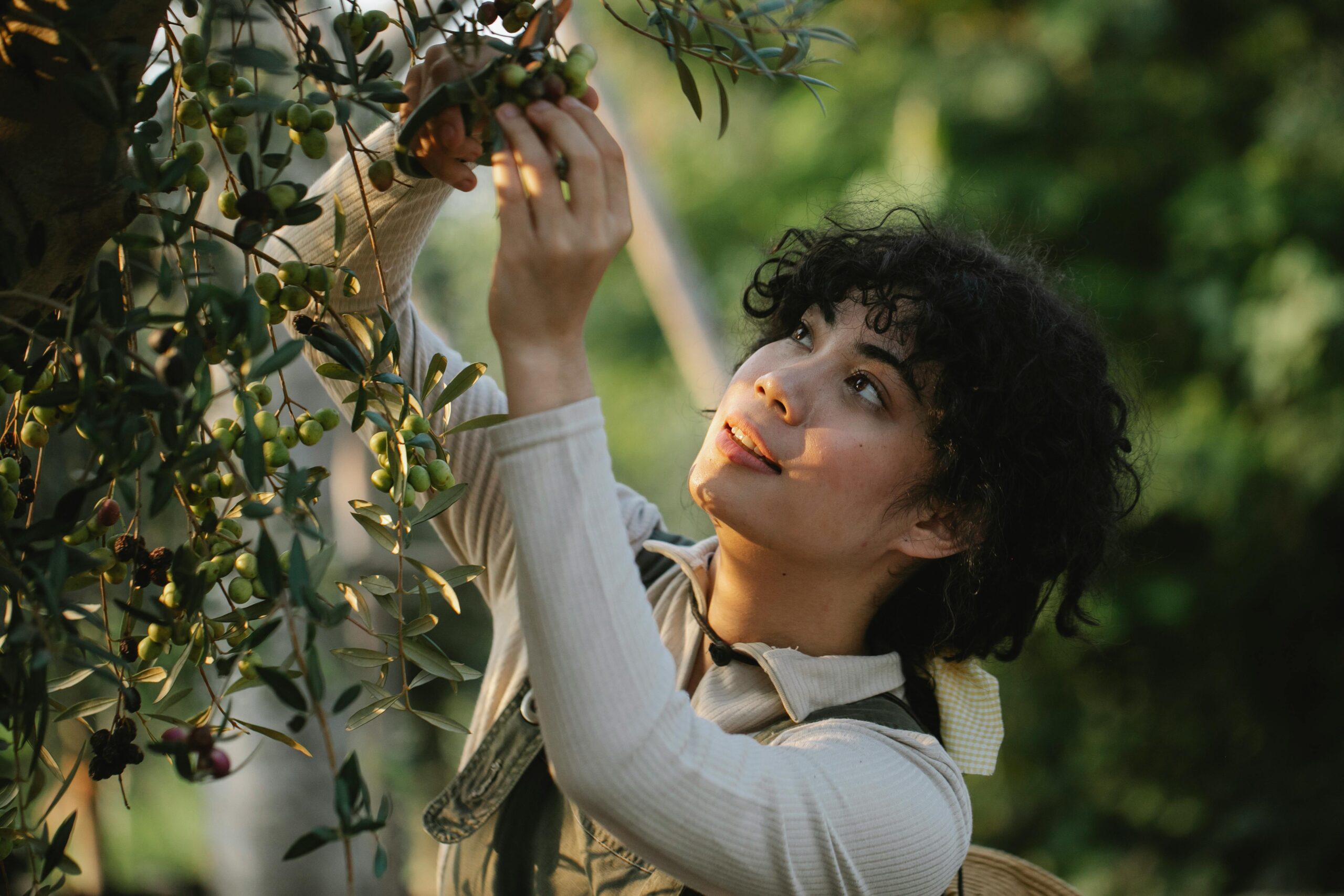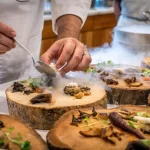When it comes to food security, and environmental sustainability, several people in their professional capacity play their respective roles. This include horticulturists, who shape and preserve our living environments. But what exactly does the job of horticulturist entail? We will try to find the answer in this article covering the meaning of horticulture, outlining the typical responsibilities of a horticulturist, and also talking about their career path, salary data, horticulturist interview questions and more.
What is horticulture?
Horticulture is the science and art of cultivating fruits, vegetables, flowers, and ornamental plants.
It could necessarily include a wide range of practices, such as landscape design, nursery management, crop production, plant breeding and more. Unlike general agriculture (that primarily focuses on large-scale food production) horticulture places a stronger emphasis on sustainability, plant aesthetics, and naturally as their job demands, the health of individual species. It usually combines knowledge from botany, soil science, entomology, and even in many cases, business management as well.
What is a horticulturist?
Now that we have a basic understanding of horticulture, knowing what people who practice it do will be simple.
A horticulturist is a trained professional who specializes in the cultivation, propagation, and care of plants.
They may work in a variety of settings, such as botanical gardens, greenhouses, research institutions, farms, landscaping firms, or government agencies.
Some horticulturists focus on producing food plants, others may concentrate on ornamental or medicinal species.
In simple words, a horticulturist’s work is about understanding plant needs and creating environments where they can thrive, regardless of location – whether that’s a rooftop garden in a city or a commercial nursery in the countryside.
Key duties and responsibilities of a horticulturist
A horticulturist’s duties may include:
- Planning and managing the growth and care of plants in different environments
- Conducting soil, water, and nutrient analysis
- Designing landscapes and recommending suitable plant species
- Monitoring plant health and identifying diseases or pests
- Developing plant breeding programs for improved yield or disease resistance
- Advising agricultural or landscaping businesses on best practices
- Maintaining detailed records of plant growth and environmental conditions
- Using technology such as irrigation systems or climate control tools
- Ensuring compliance with environmental and safety regulations
Some roles may lean more toward research and development, whereas others focus on direct plant care or commercial production.
Career paths in horticulture
Horticulture offers diverse and rewarding career opportunities. if you are passionate about plants, landscapes, and sustainable growing practices, this may be a good career option.
Here are some of the main career paths within this field:
Production horticulture
- Greenhouse manager – Oversees plant production in controlled environments
- Nursery grower – Specializes in propagating and growing ornamental plants
- Crop production specialist – Manages fruit, vegetable, or flower production
- Vineyard manager – Oversees grape production for wineries
Landscape horticulture
- Landscape designer – Creates functional and aesthetic outdoor spaces
- Landscape contractor – Implements landscape designs and installations
- Arborist – Specializes in the care and maintenance of trees
- Groundskeeper – Maintains parks, sports fields, and public spaces
Plant science and research
- Plant breeder – Develops new plant varieties with specific traits
- Horticultural researcher – Studies plant growth, diseases, and cultivation methods
- Extension specialist – Provides research-based information to the public
- Plant pathologist – Diagnoses and treats plant diseases
Public horticulture
- Botanical garden curator – Manages plant collections and exhibits
- Public garden director – Oversees operations of botanical institutions
- Museum horticulturist – Maintains living exhibits and historical landscapes
- Horticultural therapist – Uses plants and gardening for therapeutic purposes
Business and retail
- Garden center manager – Runs retail operations selling plants and supplies
- Horticultural sales representative – Markets products to professionals
- Floral designer – Creates artistic arrangements with cut flowers
- Horticultural consultant – Provides expert advice to clients
Education and communication
- Horticulture teacher – Educates students at various levels
- Garden writer – Creates content about plants and gardening
- Horticultural photographer – Specializes in plant and garden photography
- Social media specialist – Manages digital content for horticultural businesses
As you can see, the field is broad (even the list is not all-encompassing) and someone with expert knowledge in horticulture can find opportunities in several areas.
How to get started/Starting a career in horticulture?
If you’re ready to take the next step, here are a few suggestions:
- Earn a degree in horticulture or a related field. Many community colleges and universities offer programs that include both theory and practical experience.
- Seek internships or volunteer opportunities. Working at botanical gardens, farms, or environmental organizations can provide valuable exposure.
- Join professional organizations. Find reputed professional organisations that offer networking, training, and job boards.
- Stay current. Follow industry trends, emerging technologies, and climate issues that impact plant growth and agriculture.
Horticulturist job description
Position Overview
A horticulturist is responsible for cultivating, managing, and studying plants in various settings, including gardens, nurseries, parks, research facilities, and commercial operations.
The role involves applying scientific knowledge of plant biology, soil science, pest management, and environmental factors to ensure optimal plant health, growth, and aesthetic appeal.
Key Responsibilities
- Plan and implement planting schedules, maintenance programs, and cultivation techniques
- Select appropriate plant varieties based on climate, soil conditions, and project requirements
- Monitor plant health and diagnose problems related to diseases, pests, or nutritional deficiencies
- Apply fertilizers, pesticides, and other treatments using environmentally responsible methods
- Maintain detailed records of plant inventory, growth patterns, and treatment protocols
- Develop and manage irrigation systems for efficient water usage
- Propagate plants through seeds, cuttings, grafting, and other methods
- Prune, trim, and shape plants to promote healthy growth and aesthetic appearance
- Collaborate with landscape architects, garden designers, and other professionals on projects
- Stay current with industry advancements, sustainable practices, and regulatory requirements
- Train and supervise junior staff or garden assistants when required
- Ensure compliance with environmental regulations and safety protocols
Required Qualifications
- Bachelor’s degree in horticulture, plant science, botany, or a related field
- 2+ years of hands-on experience in plant care, landscape maintenance, or related work
- Comprehensive knowledge of plant species, growth requirements, and life cycles
- Understanding of soil science, plant nutrition, and integrated pest management
- Proficiency in plant identification, propagation techniques, and maintenance practices
- Experience with irrigation systems and water conservation methods
- Ability to safely operate and maintain gardening equipment and tools
- Strong problem-solving skills and attention to detail
- Physical stamina for outdoor work in various weather conditions
- Valid driver’s license and (where applicable) pesticide applicator certification
Career Growth Opportunities
- Advancement to senior horticulturist or departmental manager positions
- Specialization in areas such as plant breeding, botanical garden curation, or research
- Development of expertise in specific plant families or cultivation techniques
- Opportunities to contribute to publications, educational programs, or conservation efforts
Salary range
(Add range) annually, depending on qualifications, specialization, location, and organization type.
Pls note that this job description serves as a general reference and must be customized to reflect your specific organizational needs. Pls add, edit and modify as per your needs.
The average global salary of a horticulturist
The average global salary of a horticulturist varies widely depending on the region, level of education, and area of specialization.
Generally, horticulturists can expect to earn between $25,000 to $70,000 USD annually, with entry-level positions on the lower end and more experienced or specialized professionals earning toward the higher end.
In developed countries, salaries typically range from $40,000 to $60,000 USD or more per year, while in developing nations, earnings may be significantly lower due to economic and industry differences.
Additional certifications, advanced degrees, and experience in niche areas like plant pathology or greenhouse management can lead to higher pay.
Pls note this is an estimate based on publicly available sources. Actual figures may vary largely. You should visit authority websites that provide latest data about salary.
Sample questions for aspiring horticulturists
If you’re considering a career in horticulture, asking yourself the following questions might help clarify your goals. We have listed just a few ones to provide an overall idea for preparing for the role. The complexity of questions asked in an interview will naturally vary based on what position you are applying for.
- What types of plants am I most interested in – ornamental, food crops, or native species?
- Am I more interested in hands-on plant care or research and development?
- Do I enjoy working outdoors in changing weather conditions?
- Would I prefer working in a commercial, educational, or nonprofit setting?
- Am I willing to pursue further education or certifications to specialize in a specific field of horticulture?
If you have a deep interest in biology, a love of the outdoors, and a desire to make a positive impact on the environment, horticulture may turn out to be a god career choice. The field demands both patience and problem solving skills because dealing with unpredictable weather, pest infestations and plant diseases can be part of your job.
A background in science is helpful but just as important are soft skills like attention to detail, communication and time management.
FAQs
A horticulturist is a trained professional who specializes in the cultivation, propagation, and care of plants. Please read the beginning part of this article for an elaborate answer.
Not always required, but most professional horticulturist roles prefer candidates with a degree in horticulture, plant science, or a related field. Some entry level positions may accept relevant experience or vocational training.
Horticulturists work in a variety of sectors, such as agriculture, landscaping, botanical gardens, government agencies, research institutions, commercial nurseries etc.
It can be. Many horticulturists work outdoors and perform hands on tasks such as planting, pruning, or soil testing. It may involve physical labor in varying weather conditions.
Yes, many horticulturists specialize in areas like landscape design, arboriculture, greenhouse management or crop production.
Photo by Gary Barnes on Pexels.com













